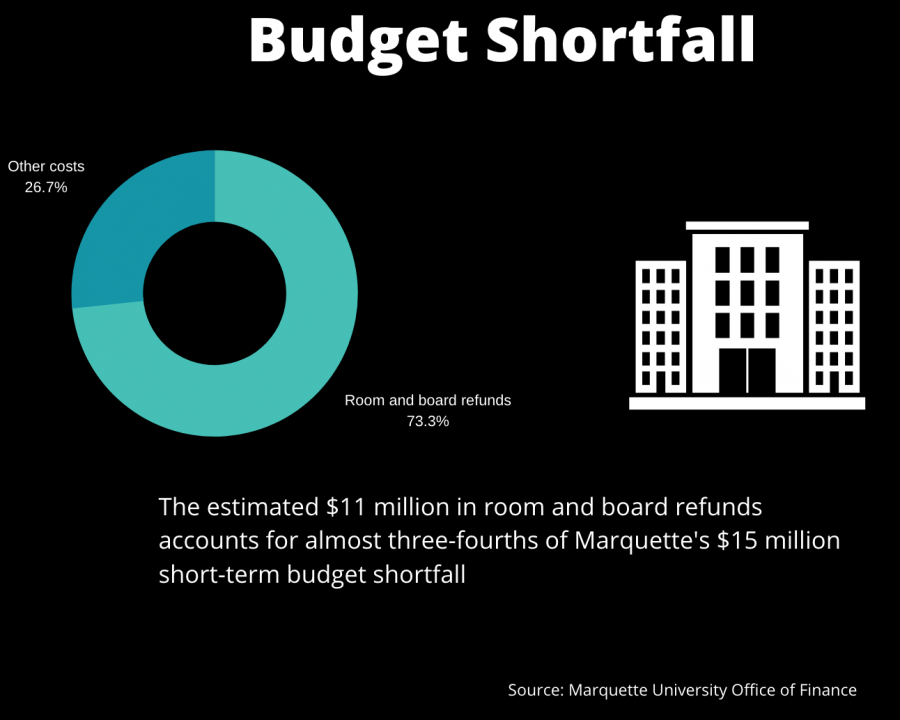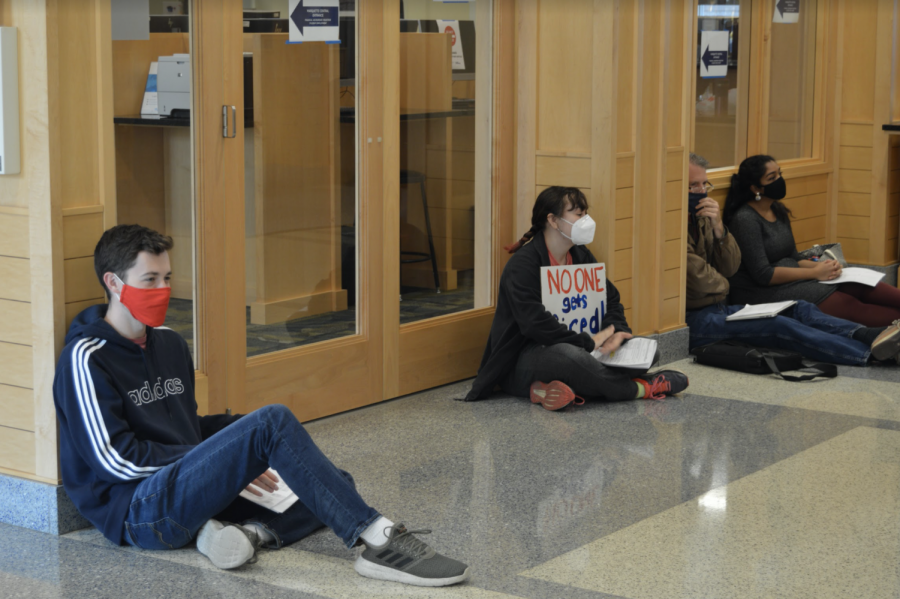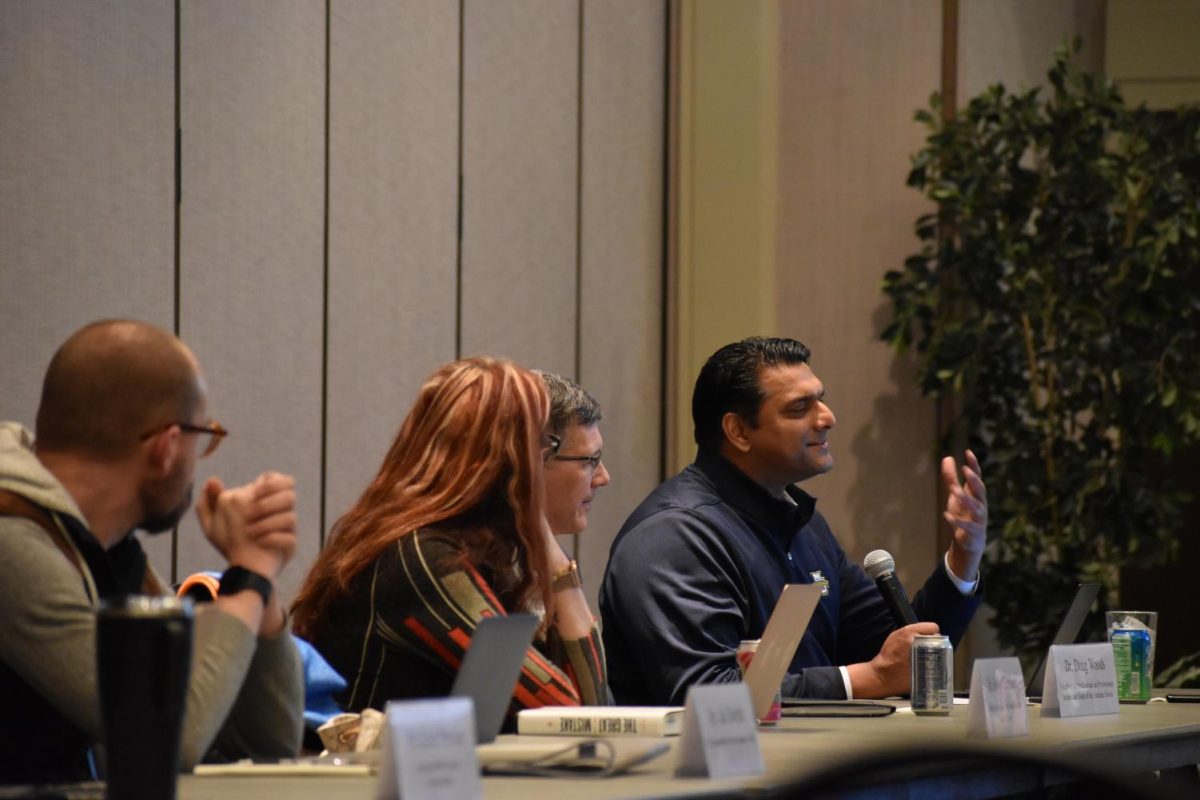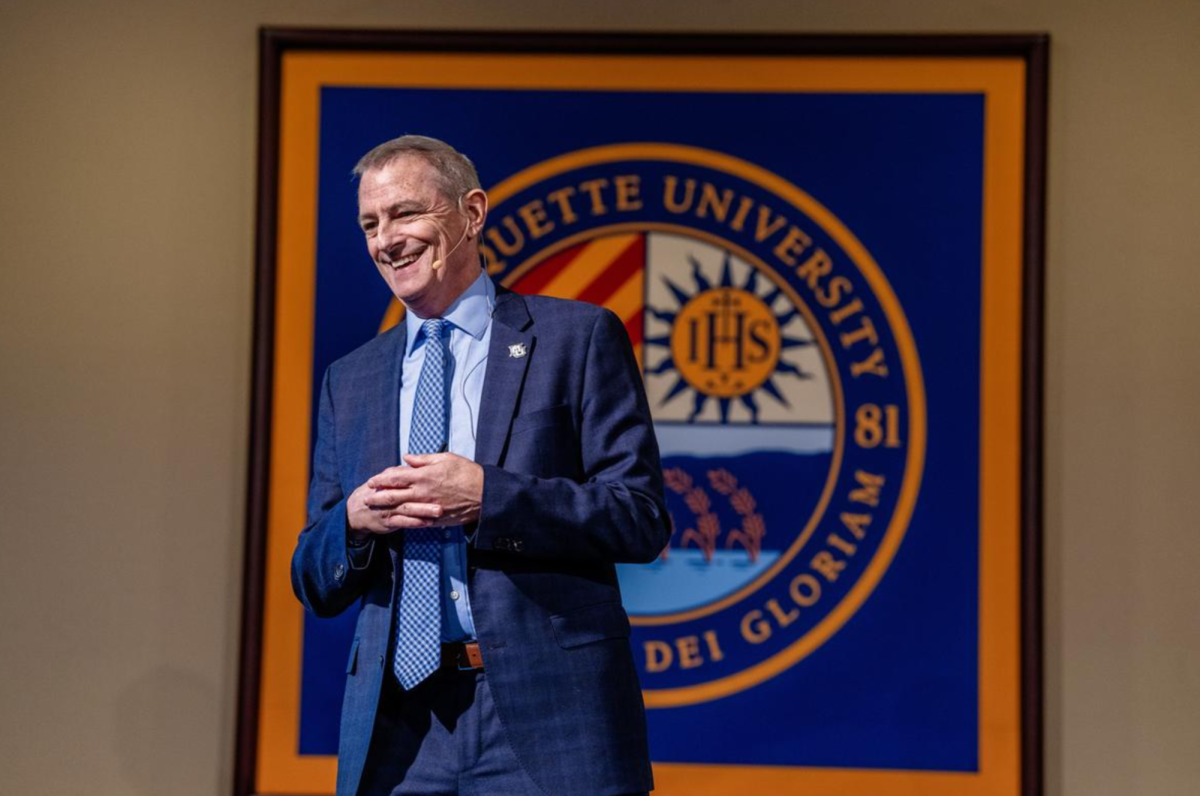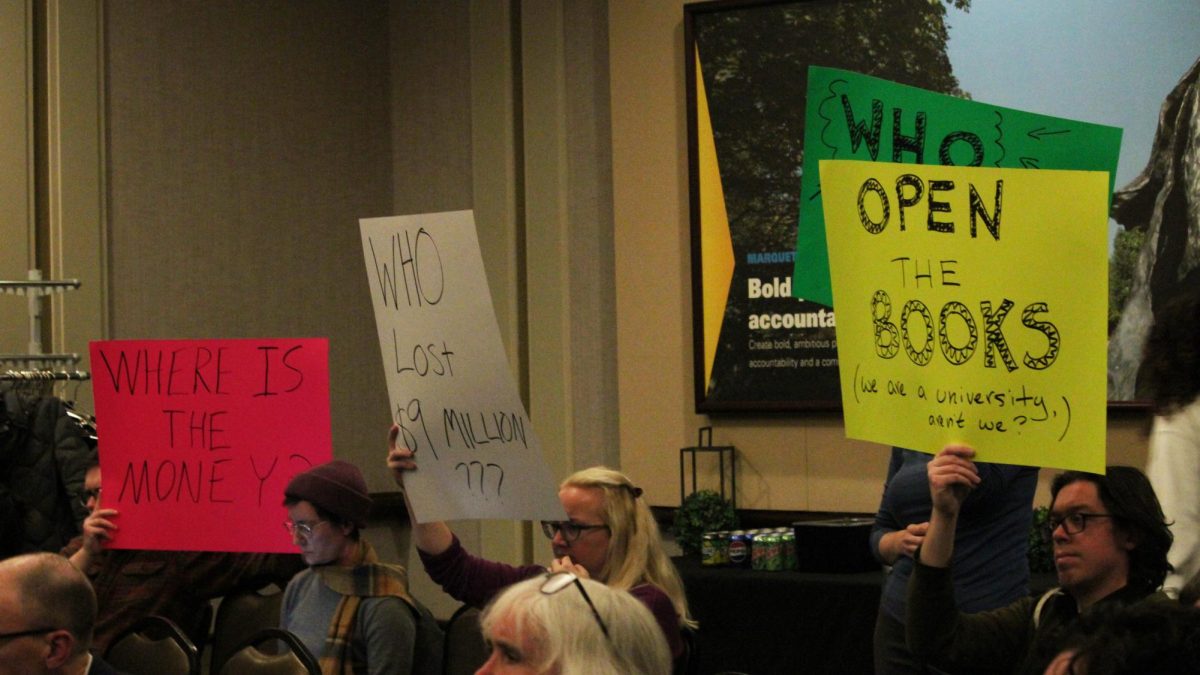The higher education system is currently experiencing the economic shockwaves of the COVID-19 pandemic. Marquette has reported multimillion-dollar short-term losses, with widening long-term impacts as the campus shutdown continues.
The pandemic has created economic stress in financial sectors across the nation. More than 26 million people in the United States have lost their jobs over the past five weeks, according to data from the U.S. Department of Labor published April 23. Research from Columbia University indicates that rising job loss totals could drive nationwide poverty rates to their highest level in more than five decades.
Universities have moved to remote online learning, creating immediate loss through housing refunds and missed revenue opportunities from campus events. They also face long-term changes through layoffs and endowment declines.
The Marquette Office of Finance, Sodexo food services and Marquette University Student Government have all made operational adjustments in response to the changing financial circumstances and campus cancellations.
Budget deficit and endowment decline
University officials announced April 14 that Marquette is experiencing a $15 million budget deficit from the impacts of the pandemic.
“Nearly all universities and many other organizations are challenged by the human and economic effects of the pandemic,” Ian Gonzalez, Marquette’s vice president for finance, said in an email. “Marquette is not immune to those challenges.”
Gonzalez said the majority of Marquette’s short-term $15 million shortfall is due to refunds on residence hall stays and meal plans. In March, the university announced it would provide certain students with 50% refunds for unused residence hall stays, meal plans and parking permits. Gonzalez said Marquette is experiencing additional expenses through facilitating the transition to distance learning and costs to clean and secure the campus.
The Office of Finance estimates that room and board refunds will cost the university $11 million, according to university spokesperson Chris Stolarski.
The offices of the president, provost and senior vice president, college deans, vice provosts, and vice presidents have also reduced their budgets to offset the costs of the pandemic, Gonzalez said. Additionally, an April 8 university statement announced that 250 employees have been placed on temporary unpaid furlough until the university’s normal operations resume. The announcement also noted that merit increases and nonessential hiring have been paused. The nonessential hiring pause does not include positions necessary for “operational continuity” or positions that were targeted to be filled for the spring or fall 2020 semester.
Gonzalez said the university has experienced some cost savings through reduced services, fewer office expenses, lower utility costs and the suspension of university travel. Marquette is also expected to receive $6.6 million of aid from the Higher Education Emergency Relief fund under the CARES Act, an economic relief bill signed into law by President Donald Trump March 27.
At least 50% of Marquette’s aid, or about $3.3 million, must be used to provide grant aid to students. The remaining amount can be used toward the university’s economic shortfalls. Cornell University and Grand Canyon University have announced that they will give 100% of received funds toward student grant aid.
“With regard to the relief aid, we are carefully considering how to best use this resource to partially offset university losses and support our students during this challenging time,” Gonzalez said in an email.
The economic fallout from the pandemic has also ignited debates about university endowments. An endowment is a large sum of a money funded by donations that a university invests into financial markets and assets to increase the sum’s long term value.
Last week, Trump and several Republican Congress members criticized Harvard University for accepting $9 million in CARES Act relief while maintaining an endowment around $40 billion.
The CARES Act non-discretionally allocated funding to universities using a formula most heavily weighted by the school’s proportion of students who receive Pell Grants, which are federal grants limited to students with financial need. Harvard has since announced it will reject all CARES ACT relief funding, citing the political attention it received and noting that it did not request or apply for the funding.
Marquette’s endowment represents the permanent capital of the university, according to the Office of Finance website. It is used to support student scholarships, academic programs and salaries.
As of March 31, the value of the endowment is $620 million, according to Sean Gissal, the university’s chief investment officer. At the end of the 2019 fiscal year, the endowment had a value of $698 million. Gissal said that for the first financial quarter of 2020, the endowment has declined approximately 13.5%.
“Like many other organizations throughout the world that are impacted by the pandemic, we are exploring multiple scenarios and financial models to proactively consider and prepare for future impacts beyond what we’ve already experienced in the shorter term,” Gonzalez said in an email.
Dining Service layoffs and operational changes
The pandemic has created operational changes for Sodexo, the university’s provider for residence hall dining services. Marquette Dining Services has laid off 190 non-student team members, residential operations director Brant Keel said April 10. Keel said that all current dining services are being handled by a rotation of 23 Sodexo managers who remain on campus.
Services are currently only being provided at Cobeen Hall’s dining center for students who remain on campus. Sodexo has enacted social distancing protocols, including packaging all meals for takeout, restricting the number of patrons and utilizing pre-packaged plastic silverware and napkins, Keel said.
“We are very honored to continue to serve our students that remain on campus,” Keel said in an email. “We truly hope our continued service during these uncertain times has helped those still here on campus feel normal to some degree.”
Keel said Sodexo has launched an extended sick leave policy for employees affected by the pandemic. It will provide paid sick leave for both full-time and part-time employees for up to 21 work days if they have a confirmed case of COVID-19 or are asked not to come to work due to COVID-19 symptoms.
Student dining hall employees fall under university policies covering all student employees during the campus closure, Keel said. Marquette’s COVID-19 frequently asked questions page states that student employees “for whom it is not critical to work on campus should not be working on campus.” Keel said Sodexo currently does not have any student workers at dining hall sites.
Student organization funding
MUSG has altered its handling of student organization funding, implementing protocols to allow many organizations to make up previously approved events in the fall 2020 semester.
Student organization funding is granted through two systems: bulk funding and spot funding. Organizations apply for bulk funding the semester before they hope to use it, and funds are directed toward large-scale events. Spot funding is used for small-scale or unanticipated expenses and is granted on a rolling basis for use in the ongoing semester at the time of application.
MUSG canceled spot funding grants for the remainder of the current semester after spring break, March 8-15. MUSG Executive Vice President Dan Brophy said MUSG made the decision upon the realization that campus was unlikely to reopen April 10, the day Marquette originally planned to resume in-person classes.
Brophy said organizations that were granted spot funding for this semester will be able to use the funding in the upcoming fall semester.
“If an organization had an allocation for an event, say on April 10, that organization is still going to be able to use however much money we allocated them in the fall,” Brophy said.
MUSG has also canceled bulk funding for the upcoming fall semester. Brophy said it was not feasible for MUSG to review bulk funding requests virtually, and they did not want students to worry about meeting funding application deadlines while transitioning to online learning.
However, organizations will be able to apply for fall 2020 semester bulk funding at the start of the school year. The deadline for fall bulk funding was originally set for April 3.
Student organizations fill out reimbursement forms to receive money from MUSG for approved events after they occur. MUSG has set up an online form for organizations to receive reimbursements for previously held spring events through a mailed check or electronic transfer, according to MUSG finance officer Joel John.
Organizations struggling to receive refunds from outside vendors for canceled events will have to work through the situation with the vendor, Brophy said. He said MUSG has not had any organizations reach out to them about this scenario.
Brophy and John said they recommend student organizations contact MUSG if they have questions about funding.
“I think it’s a really difficult time for everybody, and I think one of the last things that a lot of students want to think about is, you know, ‘What is my organization gonna be able to do next semester?’” Brophy said. “We want MUSG to be there as a support system for organizations financially and logistically.”
This story was written by Matthew Harte. He can be reached at matthew.harte@marquette.edu

